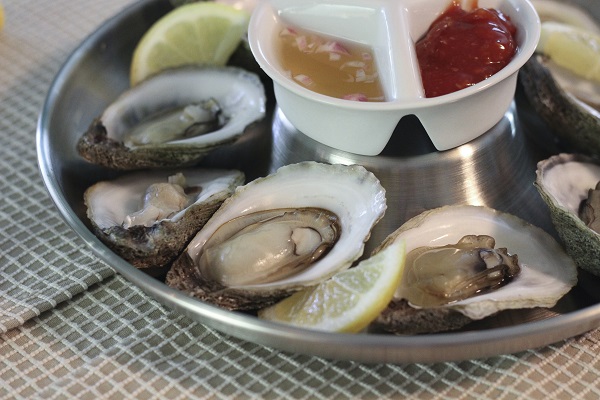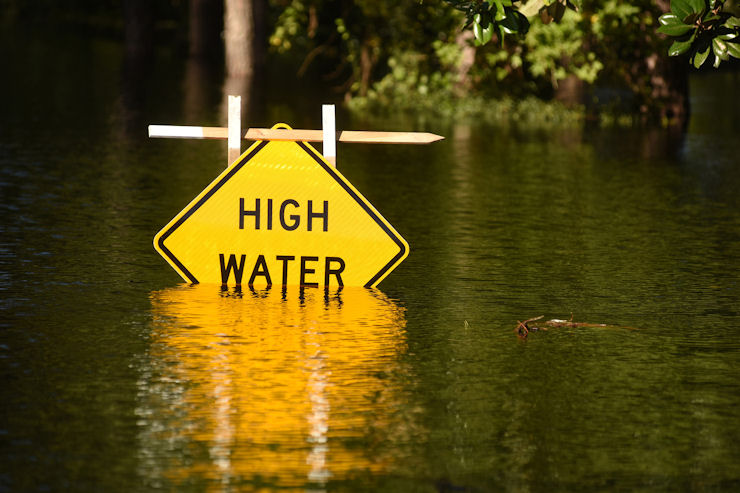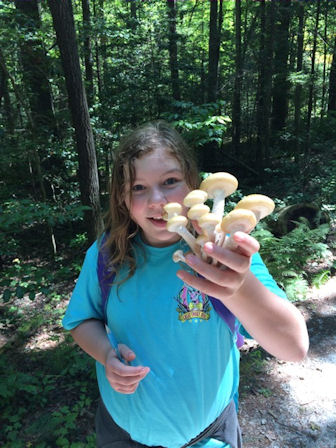PEOPLE AND PLACES: Eight New Fellows and One New Partnership

Each year, North Carolina Sea Grant helps build a cadre of educated, innovative and technologically advanced professionals through a variety of fellowships for graduate students.
Recently, eight students began critical research on topics affecting the state’s coast and communities. The tally includes a new joint fellowship inaugurated this year with North Carolina Space Grant.
“Initiating funding opportunities for students — and new collaborations — is a highlight for our program,” says John Fear, Sea Grant deputy director. “These projects exemplify the diversity of topics available to students through Sea Grant partnerships, helping each organization to expand into new areas of research. I look forward to the results.”
SEAGRASS RESTORATION
Stacy Zhang is the recipient of the 2016 Graduate Fellowship in Estuarine Research, awarded by Sea Grant and the Albemarle-Pamlico National Estuary Partnership, or APNEP. The one-year fellowship provides graduate students based in North Carolina or Virginia funding to conduct applied research within the North Carolina portion of the APNEP management boundary.
Zhang is a doctoral student in marine science and conservation at Duke University’s Nicholas School of the Environment. Her advisor is Brian Silliman, a marine ecologist.
She will study seagrass restoration methods in Back Sound, near Harkers Island in Carteret County. The project will be conducted in concert with oyster-reef restoration efforts led by Joel Fodrie of the University of North Carolina at Chapel Hill’s Institute of Marine Sciences. The research includes investigating how planting arrangement and proximity to oyster reefs may influence restoration success.
WATERSHEDS VIA SATELLITE
Lindsey Smart and Seth Theuerkauf, both from North Carolina State Unversity, are the recipients of graduate research fellowships offered jointly by Sea Grant and North Carolina Space Grant.
The new fellowship supports research within North Carolina’s nearshore environs and coastal watersheds. The projects will use relevant measurement instruments and/or remote-sensing data sources from the National Aeronautics and Space Administration, National Oceanic and Atmospheric Administration, or other data sources.
“This is a great opportunity for both Sea Grant and Space Grant to partner and support student research that addresses missions important to both organizations — and to our sponsors, NASA and NOAA,” says Chris Brown, director of North Carolina Space Grant, based at NC State.
Smart is a doctoral candidate in forestry and environmental resources at NC State’s Center for Geospatial Analytics. She is co-advised by Ross Meentemeyer, the center director, and Jordan Smith, director of the Institute of Outdoor Recreation and Tourism at Utah State University and a former NC State professor.
Using the Albemarle-Pamlico Peninsula, Smart will identify connections between vegetation loss as a result of sea-level rise and saltwater intrusion along North Carolina’s coastal plain. She will use computer simulations to explore the potential impacts of human decision-making and adaptation responses, and alternate scenarios of landscape change under different climate adaptation strategies. Results will be shared with stakeholders in hopes of guiding discussions about sustainable solutions that landowners can adopt in the Albemarle-Pamlico region and similar coastal areas.
Theuerkauf is a doctoral candidate in marine ecology and conservation at NC State’s Center for Marine Sciences and Technology, or CMAST. His advisor is David Eggleston, CMAST director.
His research will focus on the continued development of a spatial mapping tool to identify ideal locations for conducting oyster-reef restoration in Pamlico Sound. Using satellite-derived data on chlorophyll a — a proxy for phytoplankton, or “oyster food” — along with water-flow rates and dissolved oxygen levels, he will work to identify potential restoration locations that will maximize the oyster ecosystem service of water filtration.
WATER RESOURCES AND COASTAL ISSUES
Five graduate students received funding to explore current water and coastal issues in North Carolina. Sea Grant partners with the Water Resources Research Institute of the University of North Carolina system, or WRRI, for the fellowship.
The competitive funding opportunity is open to graduate students across the state. In 2016, recipients are from East Carolina University, UNC-Chapel Hill, NC State and Duke.
Regina Bledsoe, a doctoral student in the ECU interdisciplinary doctoral program in biological sciences, will study a newly constructed stormwater wetland on the university’s campus. The research builds off of previous work in restored wetlands by advisor Ariane Peralta. By conducting the project in an urban setting, Bledsoe will address gaps in previous research and determine management strategies for enhancing wetland function, improving urban water quality and decreasing greenhouse-gas production.
Elizabeth Christenson is a doctoral student in applied microbiology at UNC-Chapel Hill’sGillings School of Public Health. Her advisor is Jill Stewart.
Christenson will study the prevalence of antibiotic-resistant, virulent E. coli in North Carolina’s agricultural watersheds. The project includes using a recently developed technique, known as microbial source tracking, to determine the host source of the E. coli. She also will incorporate spatial analysis to identify land-use characteristics that may mitigate some effects of contaminated runoff.
Jack Kurki-Fox, a doctoral student in biological and agricultural engineering at NC State, will test an innovative model of nutrient removal for restored wetlands.
Using a lab-scale model of nutrient removal — previously developed by advisor Michael Burchell and other NC State department members as a jointly-funded Sea Grant and WRRI project — Kurki-Fox aims to show water-quality and ecosystem benefits on a larger scale. He will use a restored wetland in Hyde County as a demonstration site.

Casey Lindberg is a doctoral student in Duke’s integrated toxicology and environmental health program, part of the Nicholas School of the Environment. Her advisor is Richard Di Giulio.
Lindberg will study the impacts of multiple environmental stressors, including hypoxia and common chemical pollutants, on fish populations native to estuaries along the East Coast. She will use wild-caught populations of Atlantic killifish, a small, nonmigratory estuarine fish known to have evolved resistance to certain water contaminants.

James Peerless, a doctoral student in materials science and engineering at NC State, will study a novel technology to filter and desalinate brackish groundwater. His advisor is Yaroslava Yingling.
Building off innovative nanotechnology research, Peerless’s design involves combining activated carbon with functionalized inorganic nanoparticles, or INPs. These particles measure 1 to 100 nanometers in size — for comparison, a human hair is 80,000 to 100,000 nanometers wide. INPs have been heavily studied in water purification for their ability to selectively absorb contaminants. Using computer simulations, Peerless will design and optimize the model to predict purification effectiveness. The model can be used to inform and guide fabrication of future purification technologies.
For more about North Carolina Sea Grant fellowships, go to ncseagrant.ncsu.edu/fellowships. Or, contact John Fear at jmfear@ncsu.edu.
This article was published in the Holiday 2016 issue of Coastwatch.
For contact information and reprint requests, visit ncseagrant.ncsu.edu/coastwatch/contact/.
- Categories:


